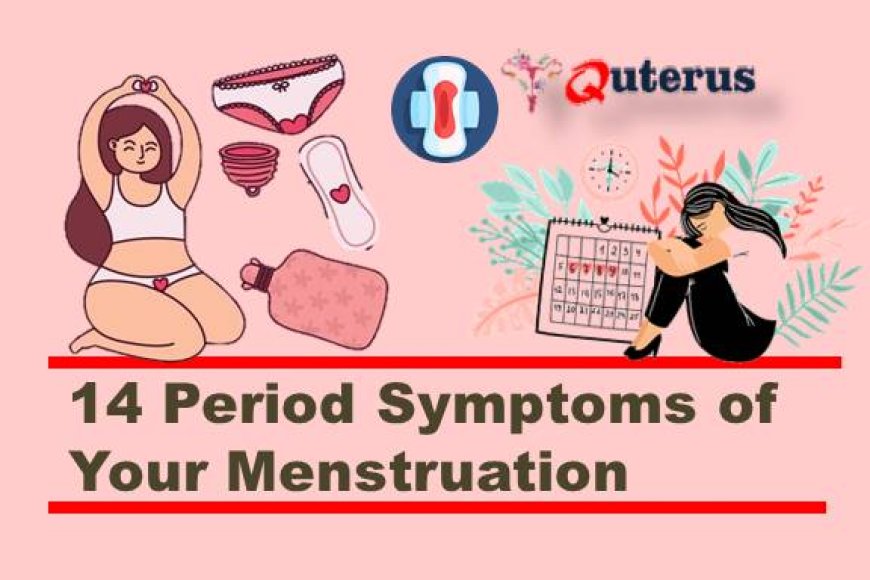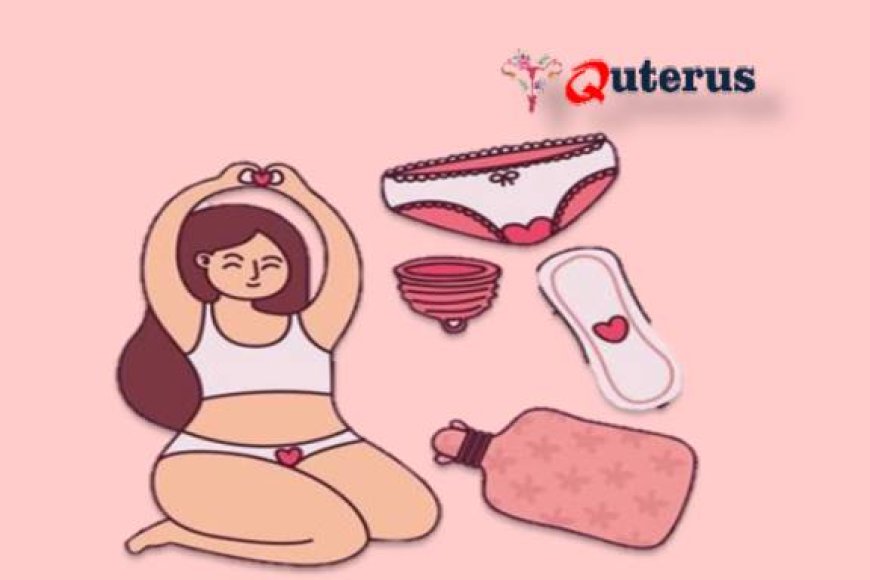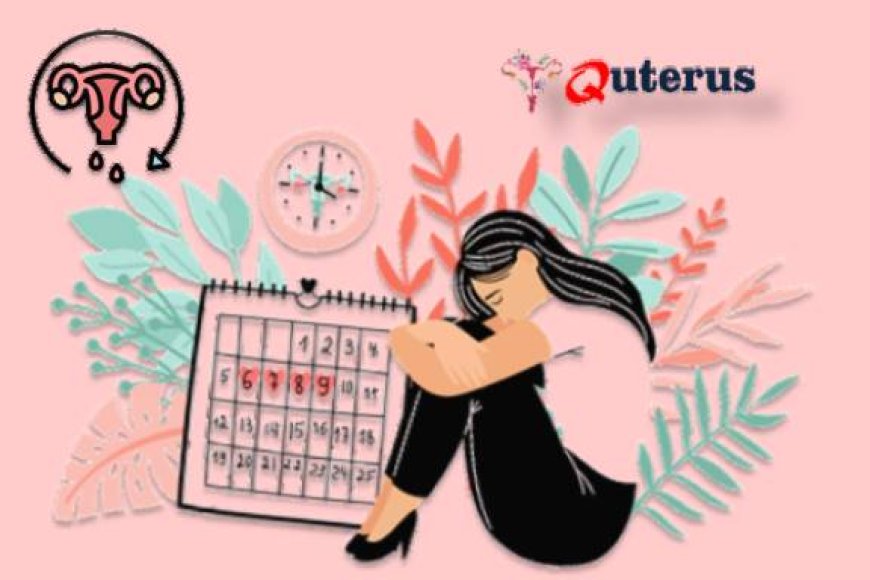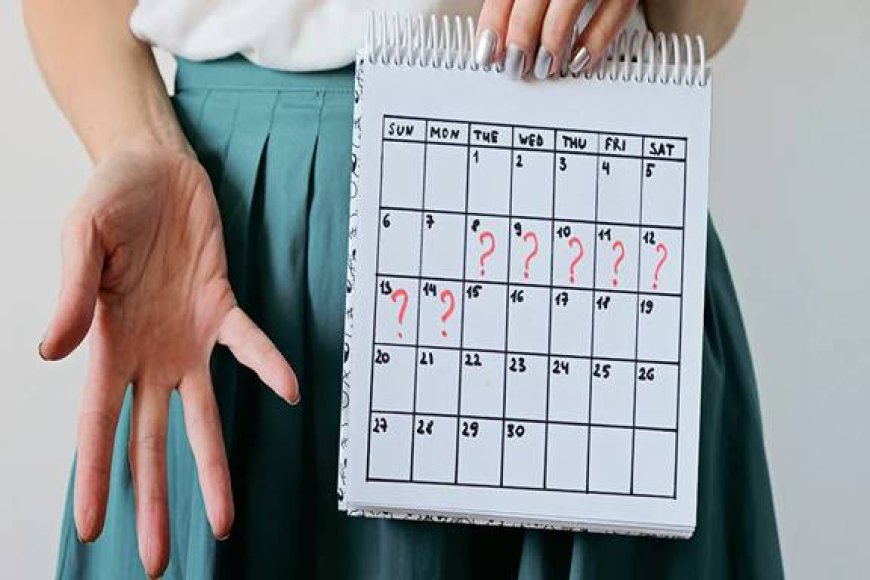14 Common Period Symptoms of Your Menstruation
Menstruation is a natural process that happens to every woman of reproductive age. However, it is not uncommon for women to experience a wide range of symptoms before, during, and after their menstrual cycle.

Normal Periods Symptoms of Menstruation
Menstruation is a natural process that happens to every woman of reproductive age. However, it is not uncommon for women to experience a wide range of symptoms before, during, and after their menstrual cycle. Understanding what is normal and what is not can help women identify and manage period symptoms effectively.

1.Cramping :
One of the most common symptoms of menstruation is cramping. This is caused by the uterus contracting to shed its lining, and it can range from mild to severe pain or pressure in the abdominal area. Women who experience severe menstrual cramps may find relief by using over-the-counter painkillers or applying heat to the affected area.
2.Mood Swings :
Hormonal changes during the menstrual cycle can also cause mood swings. Many women report feeling irritable, anxious, or depressed in the days or weeks leading up to their period. These symptoms are usually temporary and should subside once menstruation begins. However, if mood swings are persistent or interfere with daily life, it may be worth speaking to a healthcare provider.
3.Breast Tenderness :
Breast tenderness or swelling is another common period symptom. This is caused by hormonal changes in the body and should subside as menstruation ends. Women who experience severe breast tenderness may find relief by wearing a supportive bra or taking over-the-counter painkillers.
4.Bloating :
Bloating is another common period symptom. It is caused by water retention in the body, which can lead to a feeling of fullness or tightness in the abdominal area. Women who experience severe bloating may find relief by drinking plenty of water, avoiding salty foods, and getting regular exercise.

5.Headaches :
Headaches are another common symptom of menstruation. They can be caused by hormonal changes in the body or by tension in the neck or shoulders. Women who experience severe headaches may find relief by taking over-the-counter painkillers or applying heat or cold to the affected area.
6.Abdominal cramps :
Abdominal cramps or pain is caused by the uterus contracting to shed its lining, and it is accompanied by the sensation of discomfort or pain in the abdomen. The severity of the cramps may vary from mild to severe, and in some cases, the pain can be debilitating.
7.Fatigue :
Low energy and fatigue are common symptoms of premenstrual syndrome (PMS) that women may experience in the days leading up to their period. The menstrual cycle involves fluctuations in hormone levels, which affect energy levels and can lead to fatigue.
8.Bowel issues :
Changes in bowel habits are a common symptom of premenstrual syndrome (PMS) that women may experience in the days leading up to their period. PMS is caused by hormonal changes, and the gastrointestinal tract is sensitive to hormonal fluctuations.
9.Lower back pain :
Lower back pain is due to the contraction of the uterus, which causes cramping and discomfort. Additionally, the change in hormone levels during the menstrual cycle can result in inflammation and fluid retention in the body, which may contribute to lower back pain.

10.Trouble sleeping :
Difficulty sleeping or insomnia is a common symptom of premenstrual syndrome (PMS) that women may experience in the days leading up to their period. This symptom is caused by hormonal changes and can cause fatigue, irritability, and other negative effects on mental and physical health.
11.Acne :
flare-ups and skin breakouts due to hormonal changes.
12.Changes in appetite and digestion :
food cravings and digestive issues.
13.Muscle aches :
Changes in muscle pain can be a symptom of premenstrual syndrome (PMS) in women, which they may experience in the days leading up to their period. Some common symptoms of PMS include:
14.Joint pain :
Joint pain is a less common symptom of PMS, but some women may experience swollen, stiff, and painful joints during their premenstrual phase. The fluctuating levels of estrogen and progesterone in the body can cause inflammation and fluid retention, resulting in joint pain.
In conclusion, every woman's menstrual cycle is different, and while some women may experience minimal symptoms, others may experience more extreme symptoms. Understanding what is normal and what is not can help women identify and manage their period symptoms effectively. It is important to speak to a healthcare provider if symptoms are persistent or interfere with daily life.

Learn from the video also Normal Periods Symptoms of Menstruation
Is it normal to have period symptoms without the bleeding?
20 Signs Your Period is Coming (how to tell period symptoms)
Premenstrual Syndrome (PMS) Signs & Symptoms
Symptoms of Menstruation

Frequently Asked Questions
What time of day does period start?
The time of day when a period starts can vary from person to person and may not follow a strict pattern or exact time. Typically, a period can start anytime in the morning, afternoon, or evening. It is different for different people and may even vary from month to month.
A significantly greater number of cycles (70.4%) commenced during the night or in the first 4 h after rising, compared with later in the day. In a large proportion of these (29 out of 76), blood was noted to be present on waking, menstruation thus having begun at some time during the hours of sleep.
Why do I feel period symptoms but no period?
Feeling period symptoms without the onset of a period is a common experience for many women. This can occur due to a range of factors, including hormonal imbalances, stress, weight fluctuations, certain medications, and even changes in exercise routines. It is typically not considered a cause for concern unless it persists or is accompanied by other symptoms. If you have concerns about your period symptoms or menstrual cycle, it is best to speak with your healthcare provider to determine the underlying cause and appropriate management.
Why do I feel cramps but no period?
Feeling cramps without the onset of a period is a common experience reported by many women. The causes of cramping without a period may include ovulation, hormonal imbalances, stress, urinary tract infections, irritable bowel syndrome, or even pregnancy. It is important to monitor the timing and severity of the cramps and speak with your healthcare provider if they persist or are accompanied by other symptoms. They can determine the underlying cause and provide the appropriate management.

What are signs of no period?
The most common signs of no period are the absence of bleeding or spotting during the expected menstrual cycle, accompanied by a negative pregnancy test. Other signs may include the absence of common premenstrual symptoms like bloating, breast tenderness, and mood swings. However, it is important to note that the absence of a period can also be caused by underlying medical conditions such as polycystic ovary syndrome, thyroid disorders, or contraceptive use. If you have concerns about the absence of your period or changes in your cycle, it is best to speak with your healthcare provider to rule out any potential underlying issues.
What is the correct days of periods?
The number of days in a period can vary from person to person and typically lasts for 3-7 days. A normal menstrual cycle is considered to be about 28 days long, but cycles can be shorter or longer, ranging from 21 to 35 days. The first day of the menstrual cycle is considered the first day of full menstrual flow, and the last day of the cycle is considered the day before the next menstrual cycle starts. It is important to track the days of your period and menstrual cycle to notice any changes, monitor your menstrual health, and seek medical attention if necessary.
What a healthy period looks like?
A healthy period should have a consistent flow, last from 3-7 days, and occur every 21-35 days. The blood flow should be bright red in color and free of large clots or unusual discharge. It should not be excessively heavy or leave you feeling fatigued. While it is normal to experience mild to moderate cramping, excessive pain, or pain that interferes with daily activities may be a sign of underlying issues. It is important to track your menstrual cycle, monitor the symptoms of your period and seek medical attention if there are any concerns about changes in menstrual health.
Can stress delay your period?
Yes, stress can delay your period. When the body experiences stress, it releases a hormone called cortisol, which changes the levels of other hormones responsible for regulating the menstrual cycle. Stress can interfere with the normal functioning of the hypothalamus, which controls the release of hormones that regulate the menstrual cycle, leading to delayed ovulation and delayed period. If you have concerns about the effects of stress on your menstrual cycle or any changes in your menstrual health, it is best to speak with your healthcare provider for guidance and management.
Can I have a period without blood?
It is possible to have a period without blood. This can happen due to a condition called amenorrhea, which is characterized by the absence or suppression of menstrual bleeding. Amenorrhea can be caused by several factors, including pregnancy, breastfeeding, menopause, hormonal imbalances, and certain medical conditions. It is important to consult with a healthcare provider if you experience a missed or irregular period along with a change in symptoms or other concerning signs. Your healthcare provider can evaluate your menstrual health and determine the underlying cause and appropriate management.
What to do when periods are late?
If your period is late, there are several things you can do:
1. Take a pregnancy test: A late period may be a sign of pregnancy, and it is important to rule out pregnancy as the reason for the delay.
2. Consider other underlying medical conditions: Certain medical conditions such as polycystic ovarian syndrome, thyroid disorders, and eating disorders can also cause a late period.
3. Manage stress levels: High levels of stress can also delay menstruation, so it is important to manage stress levels through various techniques such as exercise, meditation, or counseling.
4. Maintain a healthy lifestyle: A healthy diet and regular exercise can improve menstrual health and help regulate menstrual cycles.
5. Speak with your healthcare provider: If your period is severely delayed or irregular and none of the above remedies seem to help, it is important to talk to your healthcare provider, who can provide a proper evaluation and management for any underlying health issues.
How do girls feel during periods?
During periods, girls may experience a combination of physical and emotional symptoms that can vary from person to person. Common physical symptoms include abdominal cramps, bloating, breast tenderness, headaches, fatigue, and nausea. Some girls may also experience mood swings, irritability, anxiety, or depression. These symptoms are caused by hormonal changes and imbalances that regulate the menstrual cycle. It is important to manage these symptoms through various techniques like regular exercise, healthy diet, or medication. If these symptoms become severe or interfere with daily activities, it is recommended to consult a healthcare provider for further evaluation and management.
What discharge comes before period?
Before a period, a girl may experience a thick, white, milky discharge from her vagina due to hormonal changes that occur in the menstrual cycle. This discharge is called "leukorrhea," which is considered normal and typically lasts from a few days to a week before a period. The discharge should not have a strong odor and usually results in cleaning away dead cells and bacteria from the vagina. However, if the discharge is accompanied by itching, burning, foul smell or changes in color or consistency, it may be a sign of underlying infection or other issues, and it is important to consult with a healthcare provider for further evaluation and management.

We provide you with authentic, trustworthy and revelant information

Have issue with the content?

The information given on our website www.uterusq.com is being posted only for the purpose of knowledge and information, before using them, choose them completely and check the correctness with your subject matter expert. We (www.uterusq.com) have no responsibility for any kind of loss.







